Search titles
Displaying results 481 to 490 of 540.

What's Changing: Population Size or Land-Use Patterns? »
The archaeology of Upper Mangrove Creek, Sydney Basin
Authored by: Val Attenbrow
Publication date: February 2007
The Upper Mangrove Creek catchment was an ideal locality in which to undertake field investigation into Aboriginal use of the coastal hinterland. The area, 101 square kilometres in size, is rich in sites that provided significant archaeological evidence of Aboriginal use of the coastal hinterland. The catchment became the focus of major archaeological salvage work in the late 1970s, prior to the construction of the Mangrove Creek Dam. Further research, undertaken by Val Attenbrow, on the total catchment expanded upon the results of earlier work. This monograph describes the later research project and summarises the salvage program results. This evidence is used by the author to explore current research issues relating to the interpretation of the mid- to late-Holocene archaeological record in Australia, particularly quantitative changes relating to population numbers and aspects of human behaviour, such as risk management, subsistence, mobility and land-use patterns.
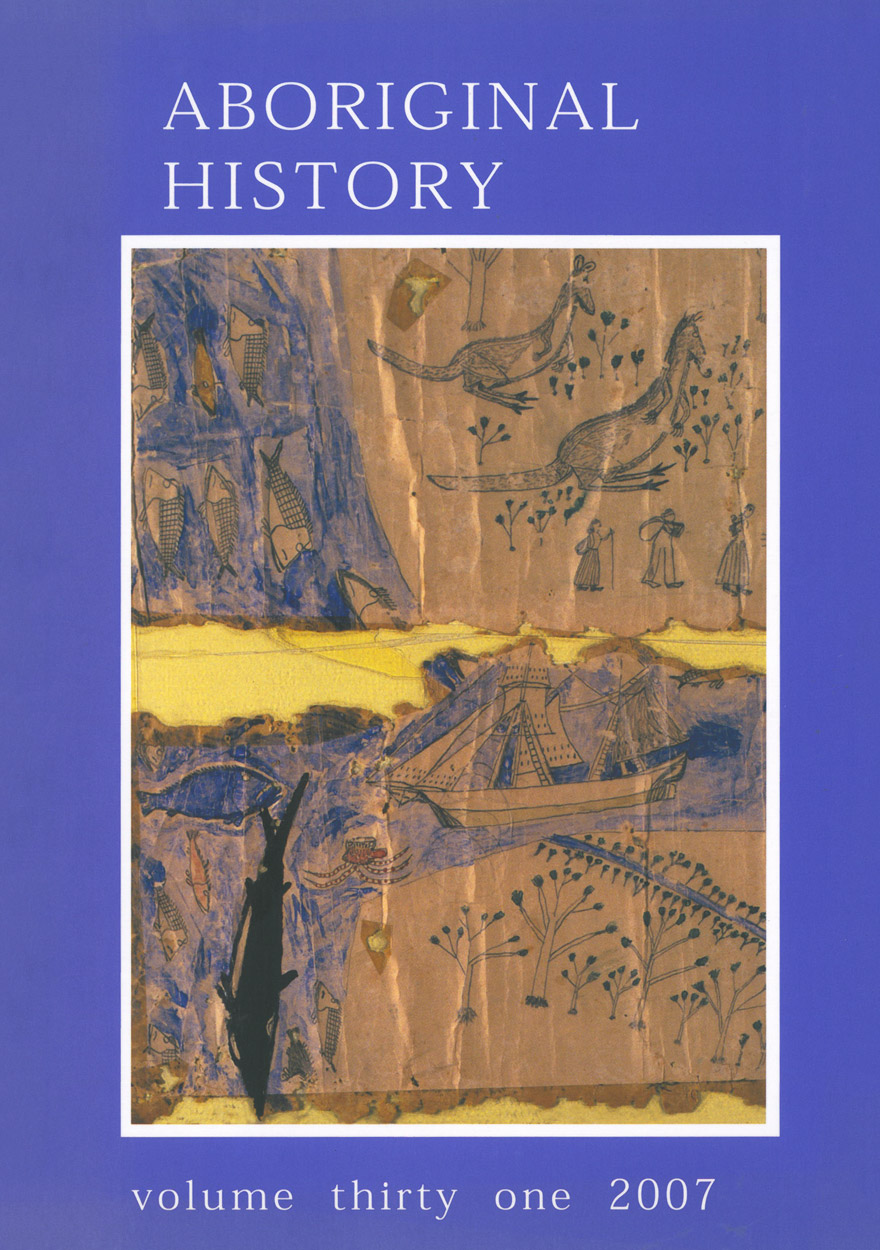
Aboriginal History Journal: Volume 31 »
Publication date: 2007
Since 1977, the journal Aboriginal History has pioneered interdisciplinary historical studies of Australian Aboriginal people’s and Torres Strait Islander’s interactions with non-Indigenous peoples. It has promoted publication of Indigenous oral traditions, biographies, languages, archival and bibliographic guides, previously unpublished manuscript accounts, critiques of current events, and research and reviews in the fields of anthropology, archaeology, sociology, linguistics, demography, law, geography and cultural, political and economic history.
Aboriginal History Inc. is a publishing organisation based in the Australian Centre for Indigenous History, Research School of Social Sciences, The Australian National University, Canberra.
For more information on Aboriginal History Inc. please visit aboriginalhistory.org.au.
Download for free
Not available for purchase
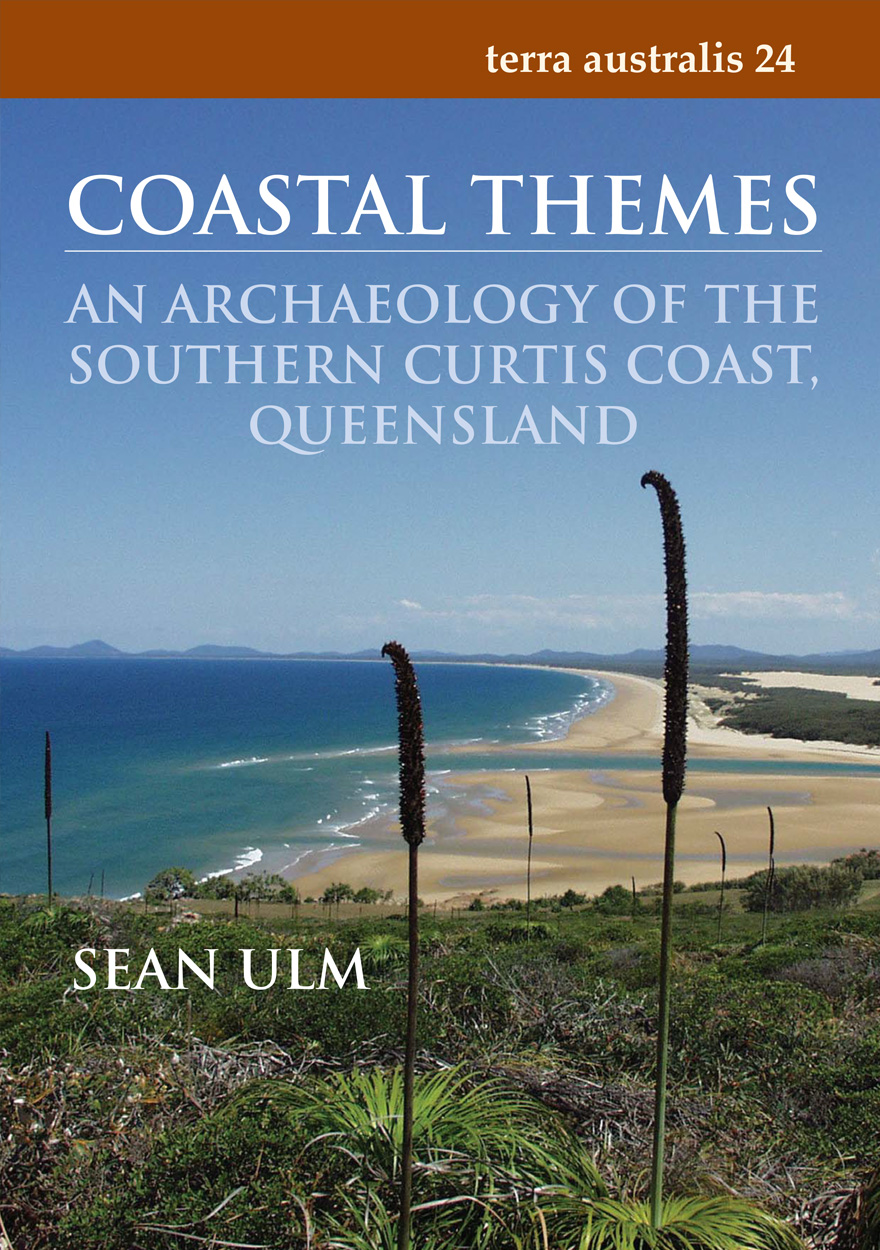
Coastal Themes »
An Archaeology of the Southern Curtis Coast, Queensland
Authored by: Sean Ulm
Publication date: December 2006
Coastal archaeology in Australia differs in many respects from that of other areas, with the potential to examine relatively fine-scale variation. Nevertheless, there has been a general tendency in Australian archaeology to play down the variability and to subsume the evidence into broader homogenising models of Aboriginal cultural change. This case study clearly and self-consciously addresses the need to focus on local and regional patterns before moving on to more general levels of explanation.
Coastal Themes builds a detailed chronology of Aboriginal occupation for the southern Curtis Coast in Queensland. Innovative analyses refine radiocarbon dates and explore discard behaviours and post-depositional processes affecting the integrity of coastal archaeological sites. The resulting insights highlight major changes in Aboriginal use of this region over the last 5,000 years and disjunctions between the course of occupation in this and adjacent regions.
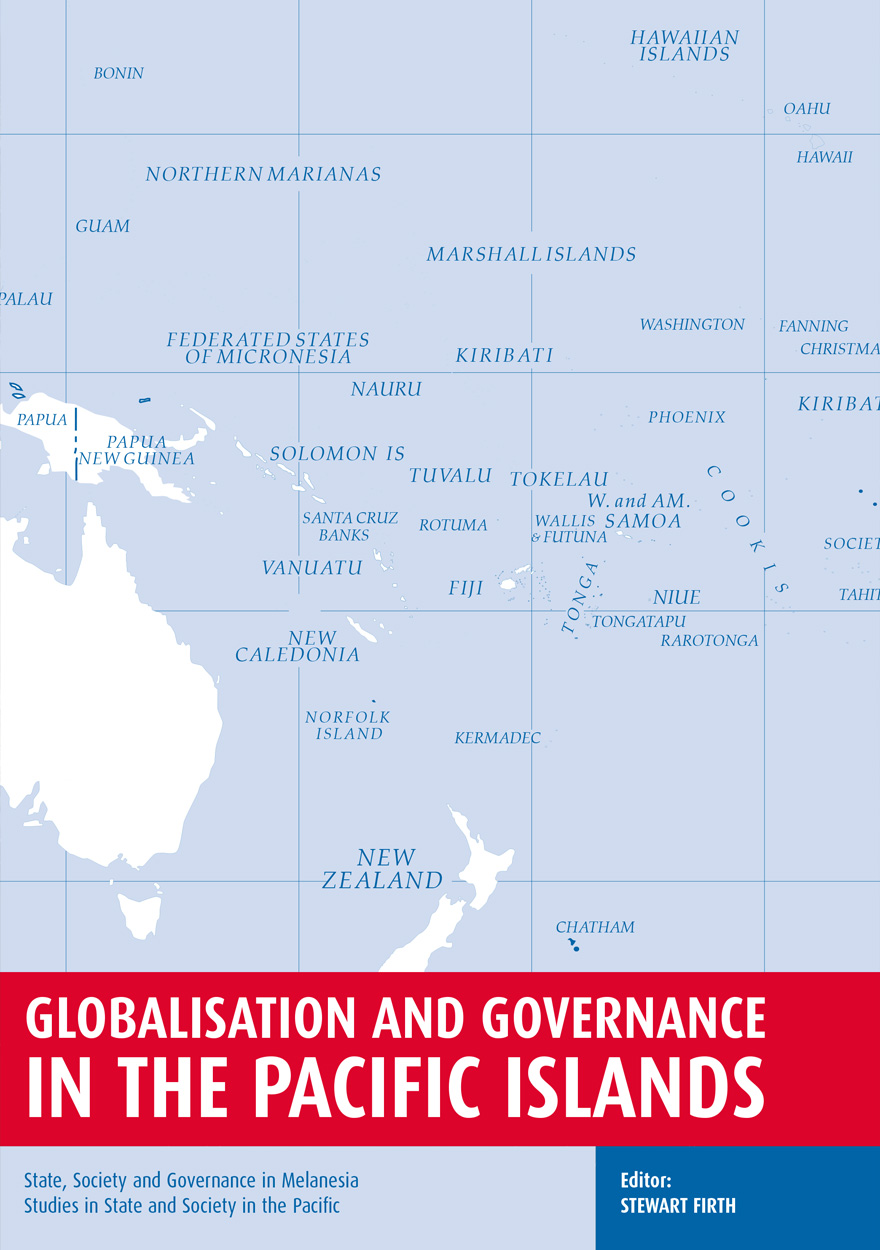
Globalisation and Governance in the Pacific Islands »
State, Society and Governance in Melanesia
Edited by: Stewart Firth
Publication date: December 2006
The Pacific Islands are feeling the effects of globalisation. Free trade in sugar and garments is threatening two of Fiji’s key industries. At the same time other opportunities are emerging. Labour migration is growing in importance, and Pacific governments are calling for more access to Australia’s labour market. Fiji has joined Samoa, Tonga, Tuvalu and Kiribati as a remittance economy, with thousands of its citizens working overseas. Meantime, Papua New Guinea and Solomon Islands grapple with an older kind of globalisation in which overseas companies exploit mineral and forest resources.
The Pacific Islands confront unique problems of governance in this era of globalisation. The modern, democratic state often fits awkwardly with traditional ways of doing politics in that part of the world. Just as often, politicians in the Pacific exploit tradition or invent it to serve modern political purposes.
The contributors to this volume examine Pacific globalisation and governance from a wide range of perspectives. They come from Papua New Guinea, Solomon Islands, Hawai’i, the Federated States of Micronesia, Samoa, Fiji, New Zealand and Jamaica as well as Australia.
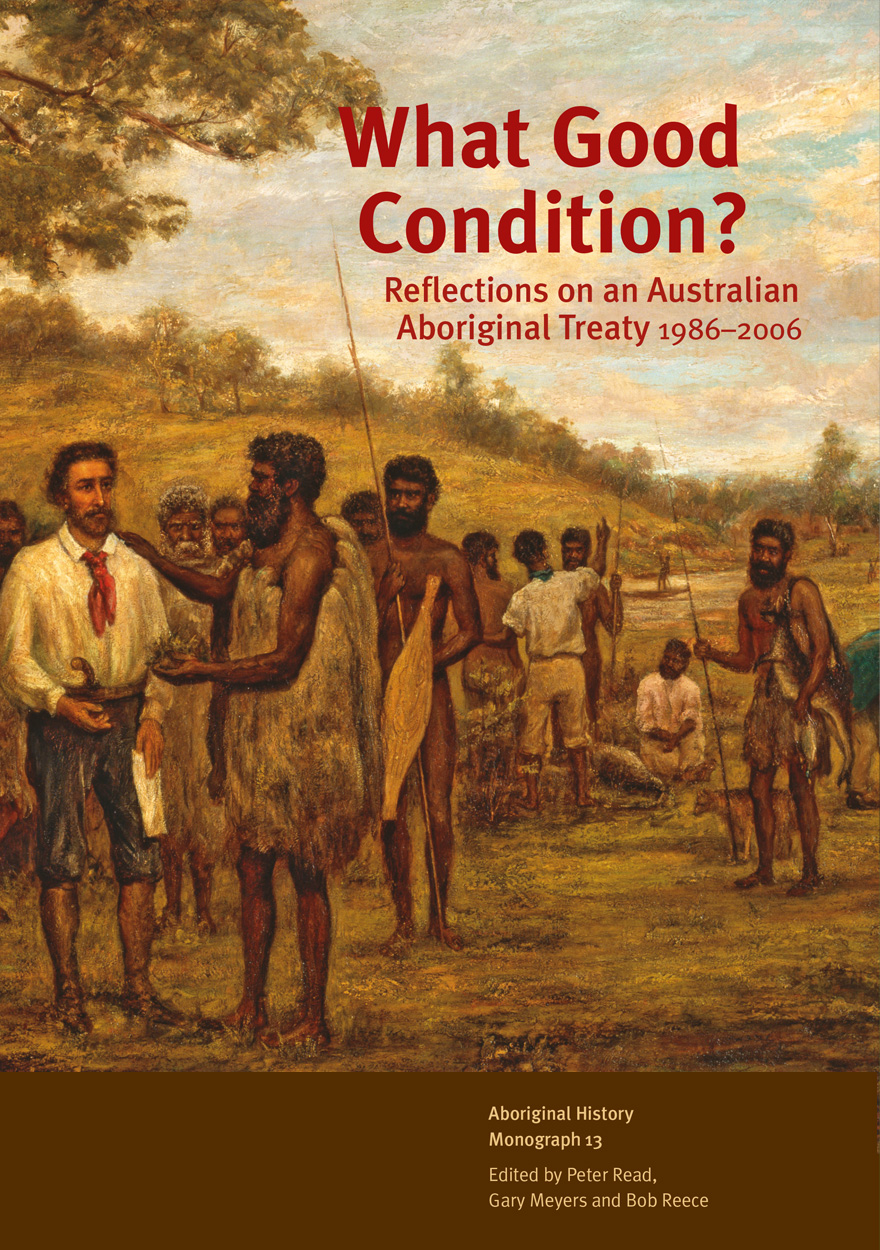
What Good Condition? »
Reflections on an Australian Aboriginal Treaty 1986–2006
Edited by: Peter Read, Gary Meyers, Bob Reece
Publication date: December 2006
What Good Condition? collects edited papers, initially delivered at the Treaty Advancing Reconciliation conference, on the proposal for a treaty between Aboriginal and non-Aboriginal Australians, a proposal which has been discussed and dissected for nearly 30 years.
Featuring contributions from prominent Aboriginal community leaders, legal experts and academics, this capacious work provides an overview of the context and legacy of the residue of treaty proposals and negotiations in past decades; a consideration of the implications of treaty in an Indigenous, national and international context; and, finally, some reflections on regional aspirations and achievements.
For more information on Aboriginal History Inc. please visit aboriginalhistory.org.au.
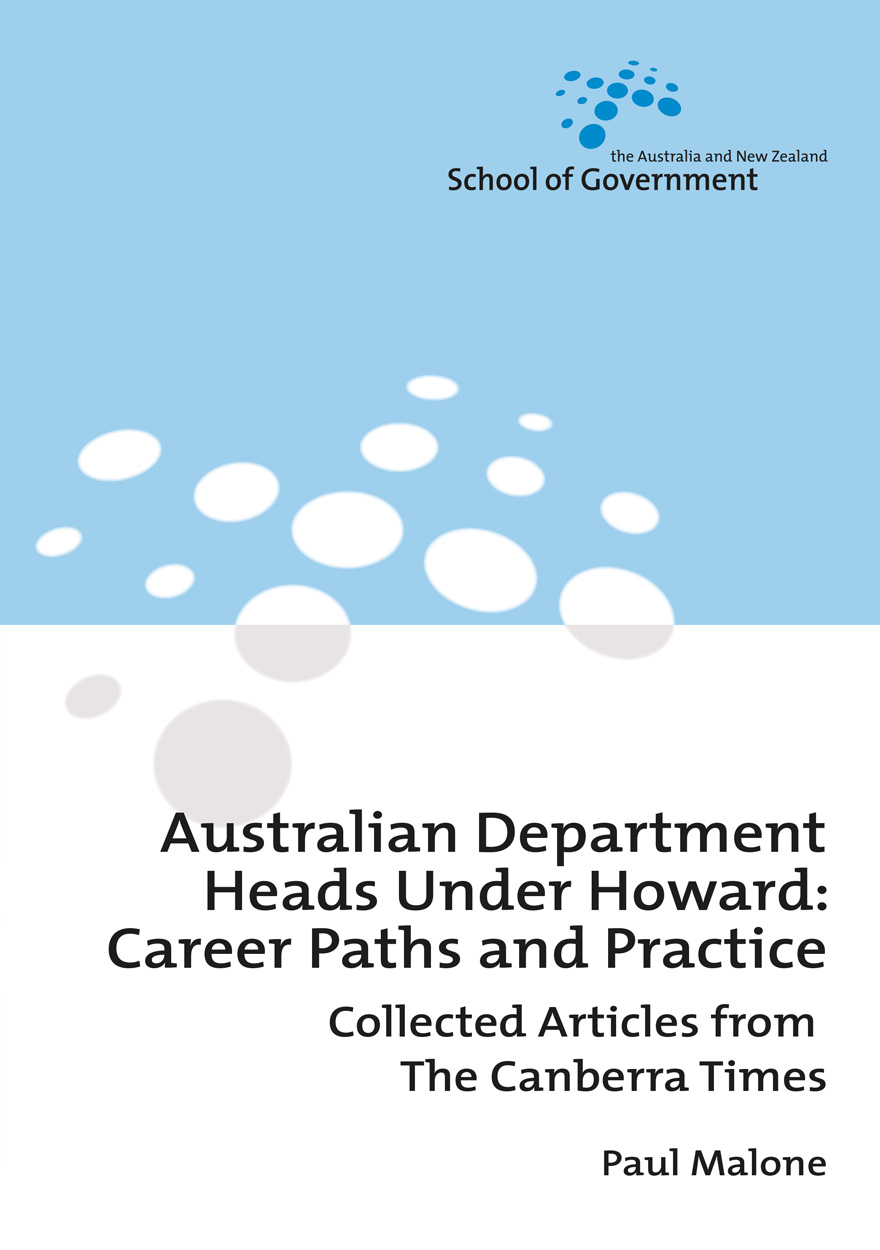
Australian Department Heads Under Howard: Career Paths and Practice »
Collected Articles from The Canberra Times
Authored by: Paul Malone
Publication date: November 2006
The articles in this collection were first published in the Canberra Times between 14 November 2005 and 22 April 2006 in a slightly different format. In some cases two articles were published on the one secretary. These have been combined into one and minor edits and corrections have been made. The articles have not been updated to take account of events since they were first published.
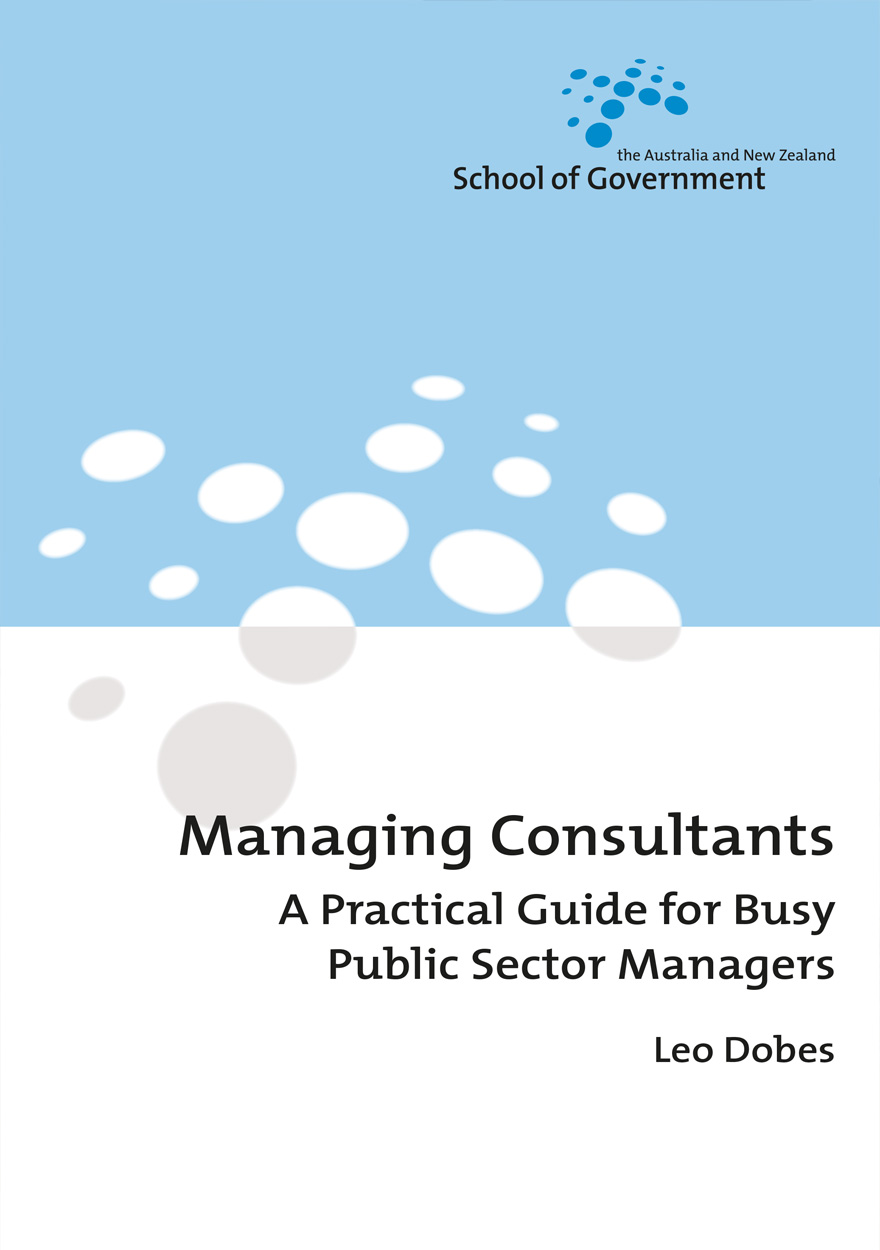
Managing Consultants »
A Practical Guide for Busy Public Sector Managers
Authored by: Leo Dobes
Publication date: November 2006
A revised and updated 2016 edition of Managing Consultants is available.
Despite considerable investment in skills development, managers in public sector organisations still exhibit significant deficiencies in contract and relationship management skills and knowledge. This monograph is a practical, user-friendly guide to the benefits, perils and pitfalls of managing outside consultants.
Writing from years of experience in managing consultants in government, Dr Dobes guides on best practice, as well as including advice on what not to do, and how to rectify shortcomings in the process of using consultants effectively.

Australian Political Lives »
Chronicling political careers and administrative histories
Edited by: Tracey Arklay, John Nethercote, John Wanna
Publication date: October 2006
This monograph brings together some of the best practitioners of the art and craft of political biography in Australia. They are simultaneously some of our best scholars who, at least in part, have turned their attention to writing Australian political lives. They are not merely chroniclers of our times but multidisciplinary analysts constructing layers of explanation and theoretical insight. They include academic, professional and amateur biographers; scholars from a range of disciplines (politics, history, sociology, public administration, gender studies); and politicians who for a time strutted the political stage. The assembled papers explore the strengths and weaknesses of the biographical approach; the enjoyment it can deliver; the problems and frustrations of writing biographies; and the various ways the ‘project’ can be approached by those constructing these lives. They probe the art and craft of the political biographer.
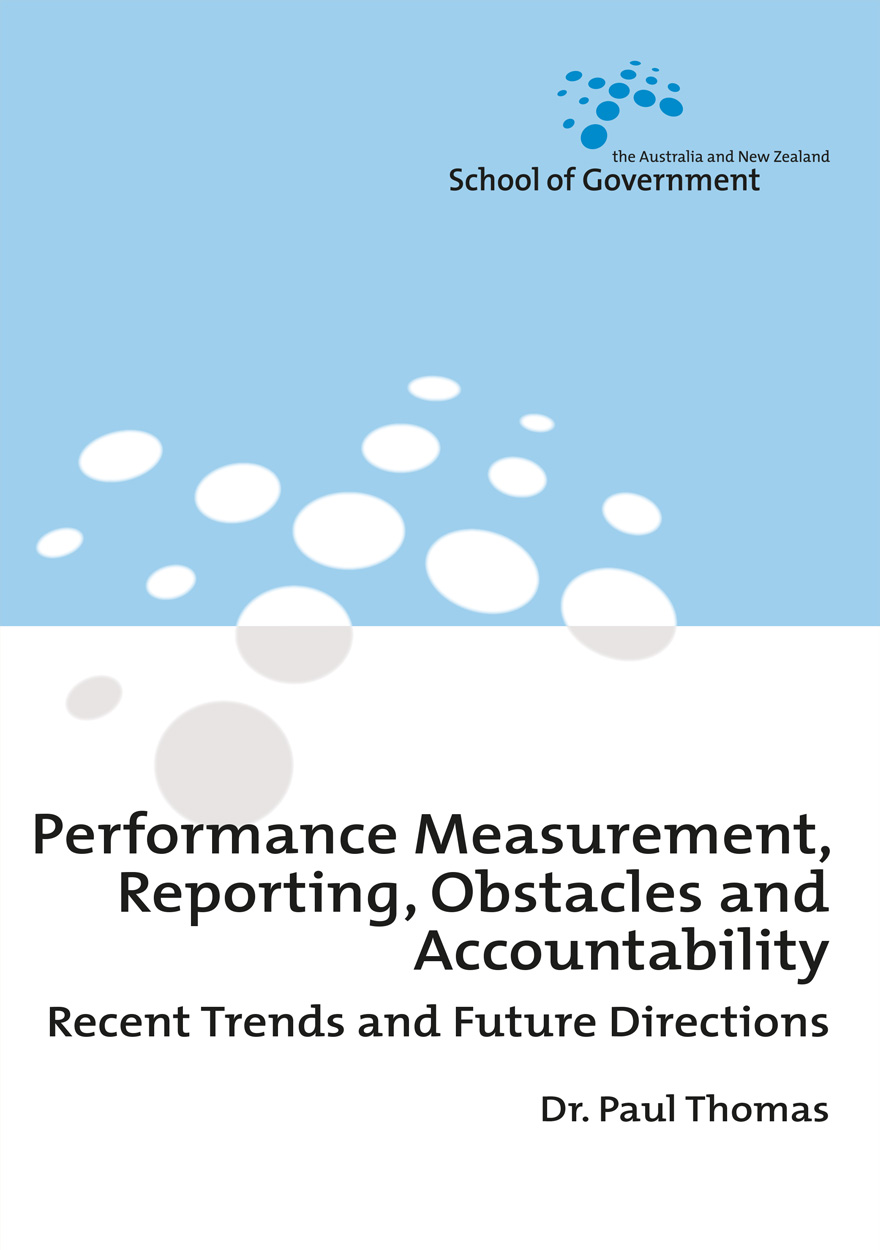
Performance Measurement, Reporting, Obstacles and Accountability »
Recent Trends and Future Directions
Authored by: Paul G. Thomas
Publication date: October 2006
This monograph identifies the ways that ‘politics’ enters into the creation of performance measurement systems, the selection of the official and unofficial aims of such systems, the selection of performance criteria and measures, the interpretation of findings, the responses to such findings and the implications of performance reporting for the accountability of both politicians and public servants. Along the way, both the conditions favouring and the obstacles to successful performance measurement will be highlighted.
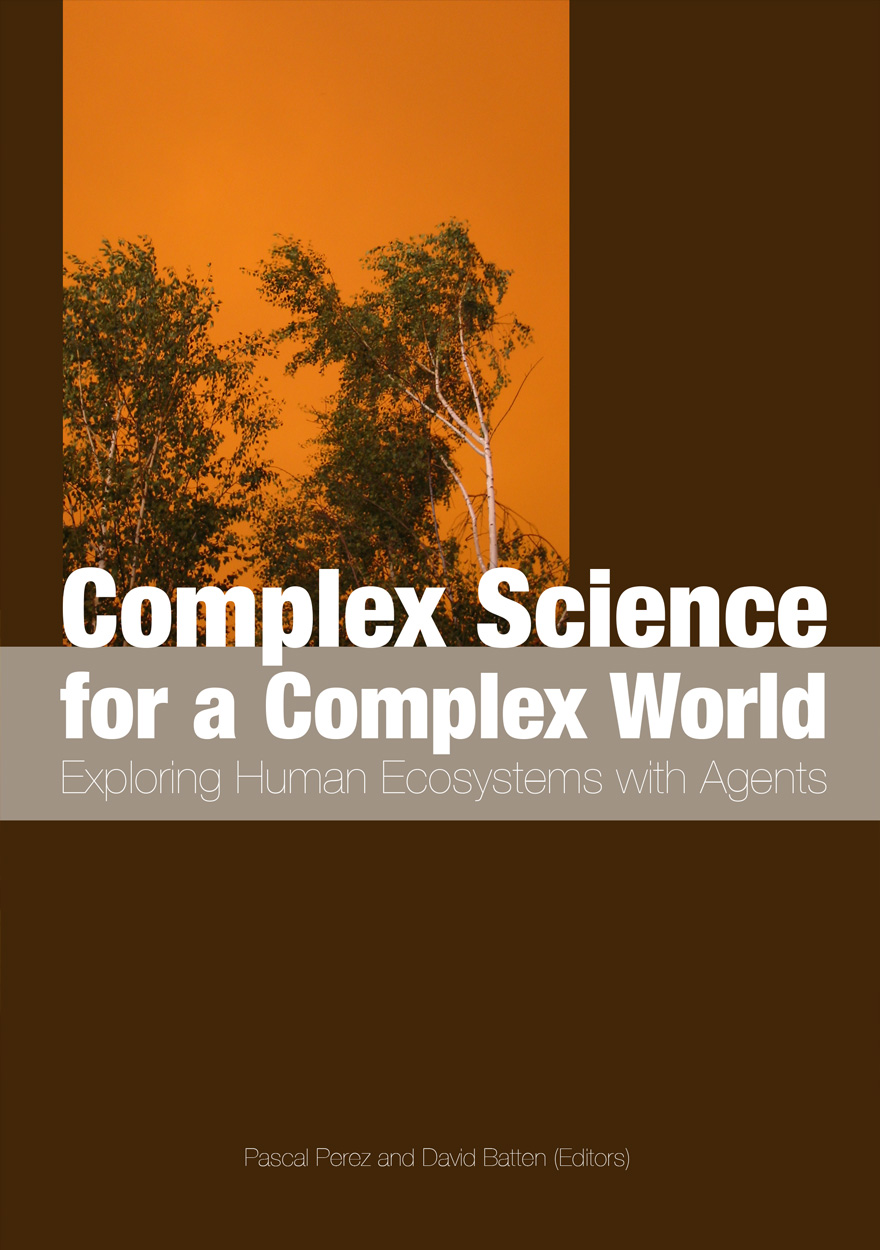
Complex Science for a Complex World »
Exploring Human Ecosystems with Agents
Edited by: Pascal Perez, David Batten
Publication date: August 2006
It is well known that human activities are endangering the stability and sustainability of many fragile ecosystems to such an extent that their future is in doubt. At the same time, these ecosystems are inherently challenging to manage successfully because of the complexity and uncertainty associated with their ongoing evolution. Much of this complexity and uncertainty may be attributed to the human dimension. Thus it is imperative that we deepen our understanding of how and why people choose to interact with one another and how this interactive behaviour affects these ecosystems as time passes.
Fortunately, a new kind of science is helping us deepen our understanding of how human ecosystems might grow and change over time. Beyond a mere collation of various reflections and applications, the chapters in this book aim to convince the reader that this new kind of science is worthy of our attention. It is a science that fully embraces the complexity of our surrounding world. It is also a science that addresses the frontiers of interactions between human behaviour and environmental responses. Furthermore, it is a science that challenges our limited understanding and treatment of uncertainty. And finally, because it is socially embedded, it is a science that can generate partnerships with local communities in a constructive manner.
We hope that you will enjoy the reading of such a diverse ‘ouvrage’ whose purpose is to attract more early career scientists into our field of research and to convince decision-makers that a growing contingent of colleagues working on complexity theory can provide useful tools and methods to better understand complex and adaptive environments. It is time to reassure you (the reader) that the rise of a ‘Complex Science for a Complex World’ doesn’t mean more complicated relationships between science and society.



